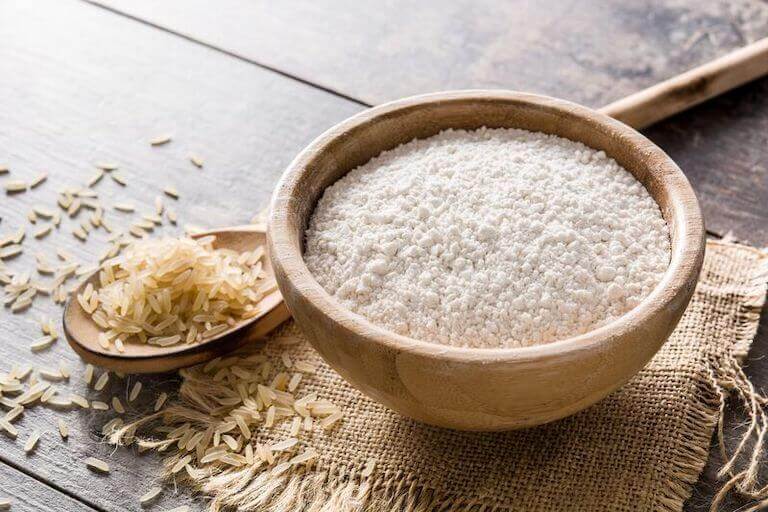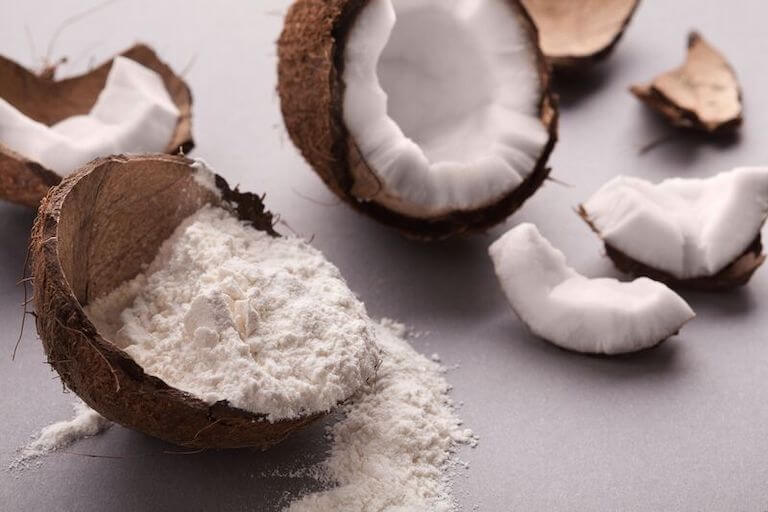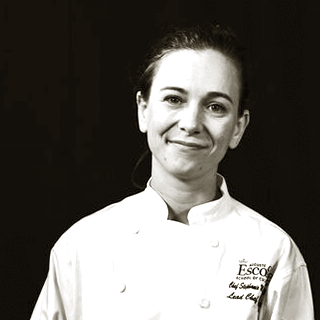Listen to This Article:
As the name suggests, all-purpose flour can be used for just about everything! You can mix it into chocolate chip cookie batter, let it form the base of flaky biscuits, or use it to coat crispy fried chicken. But despite all-purpose flour’s versatile nature, it’s not the best flour for everyone.
What if you’re looking for a gluten-free flour option? Maybe you’ve found yourself halfway through a cookie recipe only to realize you’re out of AP flour. No matter the case, you can find an all-purpose flour substitute that works for you.
What Is All-Purpose Flour?
We all know all-purpose flour is the white powder that works equally well in sweet cakes and savory breads. And you might even know that it’s made from wheat. But you may still be asking yourself “where does flour come from?”
It’s true that all-purpose flour is made from wheat. However, it’s not made from the whole wheat kernel—just the protein-rich endosperm. Most all-purpose flour is made from a blend of hard and soft wheat. Since soft wheat has a low gluten content and hard wheat is high in gluten, all-purpose flour has a moderate gluten content. This means it contains enough gluten to produce a strong and stretchy bread dough yet is delicate enough to produce airy cakes and muffins.
Other Types of Wheat Flour
If you’re stuck without all-purpose flour and aren’t looking for a gluten-free alternative, you can turn to other wheat-based flours.
Pastry flour has less gluten than all-purpose flour, making it a great choice if you’re making tender pie crust, muffins, and cake.
Bread flour is made from hard wheat, so it has a high gluten content that lends itself well to all types of bread, pizza dough, bagels, and more. Just don’t try to use it for delicate treats like cakes, scones, and muffins, which need to be lighter and fluffier than other types of dough.
Whole wheat flour contains all three parts of the wheat kernel: the endosperm, bran, and germ. If you swap whole wheat flour for its all-purpose cousin, anticipate a denser dough. You may also need to decrease the amount of flour since whole wheat flour absorbs more liquid.
Top All-Purpose Flour Substitutes
Many all-purpose flour alternatives happen to be gluten-free, but even ingredients that don’t contain gluten themselves may be vulnerable to cross-contamination at numerous steps in their processing. Always refer to product labels for gluten-free certification to ensure you’re getting something that’s truly gluten-free.
So what are some ingredients that you can turn to when you want to avoid using all-purpose flour?
1. Almond Flour
While almond butter is also made from ground almonds, almond flour results from a slightly different grinding process using blanched almonds. Almonds may also be de-fatted before grinding to ensure a certain consistency. It has a nutty taste and coarse texture that is similar to whole wheat flour.
Almond flour can work in everything from tea cakes to fried chicken breading. However, since it doesn’t contain any gluten and doesn’t offer much rise, it is best to mix it with other flours or starches, as well as a binder, if you’re looking to produce a light and fluffy cake or muffin.
2. Oat Flour
Yes, oats are for more than breakfast-time oatmeal! Since oat flour is relatively sweet and subdued in flavor, it works well in everything from biscuits to cookies to bread.
Another great thing about oat flour is that it’s easy to make yourself. Just grind up oats in a food processor or blender until they turn into flour. If you want to make the flour extra fine, use a fine mesh strainer to sift once processed.
It’s important to note that while oats are naturally gluten-free, they are often processed on the same equipment as wheat. Therefore, look for a gluten-free label if you need your oat flour to be gluten-free.
3. Rice Flour
All types of rice flour can be used as a substitute for all-purpose flour, but there are various types of rice flour that yield slightly different results.
Brown rice flour is the rice equivalent of whole-wheat flour. It has a full flavor and a bit of a gritty texture. Try incorporating it into cakes and cookies or using it to thicken sauces or stews.
White rice flour is smoother in texture and blander in flavor than brown rice flour. It can be used to make rice noodles, as part of a tempura batter, or as a sauce thickener.
Glutinous rice flour, aka sweet rice flour, doesn’t contain any gluten (confusing, we know.) It can create a gummy texture, so it’s typically used to create chewy items like mochi or as a binder for pastry items.

Rice flour makes an excellent substitute for all-purpose flour, depending on what you’re making.
4. Chickpea Flour
Also known as garbanzo bean flour, chickpea flour can be used in both sweet and savory baked goods. This flour does have a distinct flavor, but it works especially well for tortillas, roti, and other types of flatbreads.
5. Rye Flour
Since rye flour also contains gluten, it works well for yeasted breads. However, you can use this flour for more than rye bread. It can also work well in pastries and savory muffins—just be aware that its flavor differs from wheat.
6. Buckwheat Flour
Despite its name, buckwheat is not a type of wheat. Rather, it’s a pseudocereal–one of any non-grasses that are used in much the same way as cereals–and is more closely related to rhubarb. This dark flour is known for being used in buckwheat pancakes, but you can also use it as a component of yeasted breads, cookies, and other baked goods. Buckwheat flour is also classically used to make soba noodles, if you’re looking for a savory application!
7. Coconut Flour
Compared to flours made from grains, nuts, and beans, coconut flour can absorb a large amount of liquid. That means you’ll often need to use less coconut flour than you would other flours.
Due to its water-absorbing properties and low-starch content, it’s best to combine coconut flour with other flours in recipes.

Coconut flour is often combined with other types of flour for maximum results.
Explore Ingredients and Techniques in Baking School
While it’s easy to find all-purpose flour alternatives, it’s a bit more challenging to figure out how to best work with each type of flour.
How does a muffin made from almond flour rise differently from one made with coconut flour? What alternative flours should you use to create chewy and soft gluten-free bread? Rather than struggle to answer these questions alone, consider enrolling in baking and pastry school.
Escoffier’s Baking and Pastry programs introduce students to essential kitchen fundamentals and also dive into more advanced baking skills. Programs can provide students the opportunity to develop new skills and connect with talented Chef Instructors.
IF YOU ENJOYED THIS ARTICLE, READ THESE NEXT:
- How to Make Peach Melba
- When to Use an Electric Mixer and When to Use Your Hands
- How to Make Nutella Semifreddo
*Information may not reflect every student’s experience. Results and outcomes may be based on several factors, such as geographical region or previous experience.


